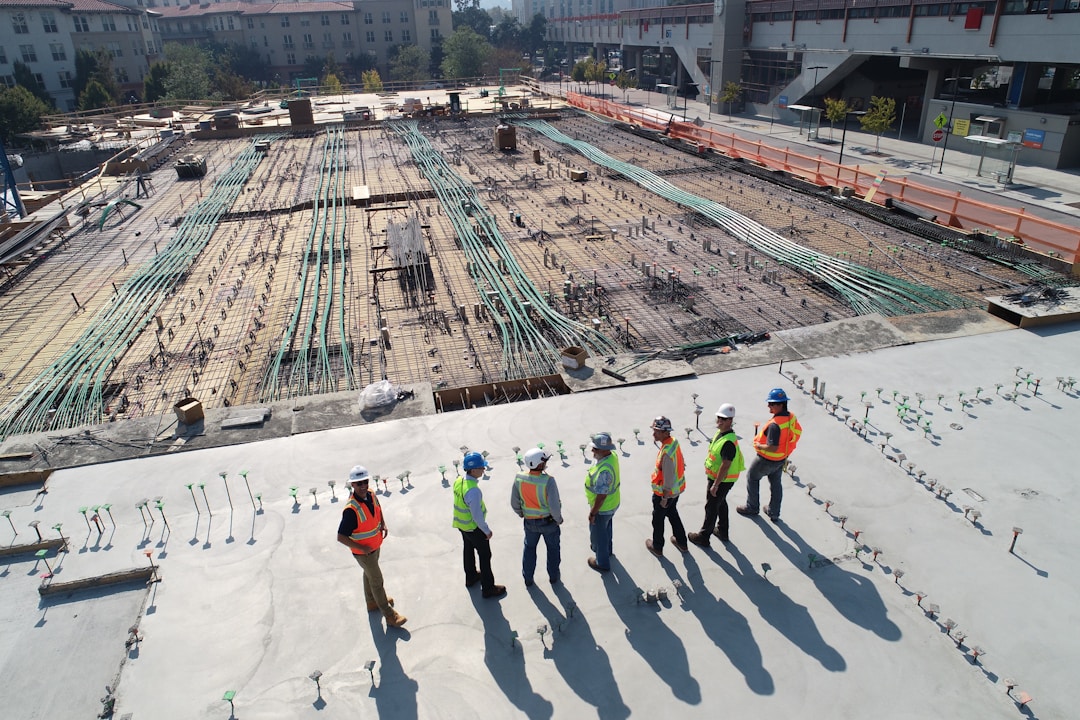
Managing a construction business is no easy feat. It comes with numerous challenges, including the inevitable associated risks and the necessity of enforcing stringent safety measures. This article aims to guide construction business owners in understanding these risks and implementing suitable protective measures. Keep reading to gain insights on how to effectively safeguard your construction business.
The Role of Insurance in Safeguarding Your Construction Business

Insurance is a critical component of risk management for any business, and construction is no exception. It is an effective way of transferring risks that the enterprise can’t manage internally. Insurance provides financial protection against losses resulting from accidents, injuries, and other unforeseen incidents.
There are multiple types of insurance policies available for businesses. They range from general liability insurance to cover injuries and property damage, to workers’ compensation insurance for on-the-job injuries, and commercial auto insurance for company vehicles. All of these can safeguard your firm from devastating financial loss.
Additionally, it’s wise to keep an eye on the coverage offered by construction insurance companies. They provide specialized policies designed for the unique challenges faced by construction businesses. They include coverage for property damage, manual and mechanical errors, delays, etc.
So, hiring a good insurance company can cover a vast proportion of risks. It can ensure that your business stays financially secure, even in the face of potential adversities.
Necessity of Strict Safety Measures to Protect Your Construction Business
Incorporating stringent safety measures is pivotal in safeguarding construction businesses. With construction sites being one of the most high-risk workplaces, the enforcement of safety protocols aims to minimize accidents and injury cases.
The adoption of safety equipment like helmets, gloves, safety glasses, and shoes should be made mandatory across all operations. Regular safety training for employees can significantly reduce the risk of accidental injuries on the site.
Furthermore, developing an emergency response plan can aid in reducing damage and escalating situations. These plans should cover all possible scenarios, right from natural calamities to workplace accidents, and detail an effective response for each.
In essence, the implementation of strict safety measures not only protects the business from potential liabilities and legal disputes but also helps in fostering a safe working environment for all.
Implementing Governing Compliance for Business Protection

Compliance with governmental regulations and industry standards is another critical aspect of business protection. Be it labor laws, safety regulations, or building codes, noncompliance can invite severe punitive action.
Compliance ensures the business operates within the parameters of the law, thus avoiding penalties and possible criminal charges. It also ensures the firm maintains good standing in the business community.
Timely audits, regular checks, and updates in policies as per changing regulations can help businesses to stay processing hassle-free. A dedicated compliance team or specialist can aid in keeping track of all these aspects and ensuring that the organization remains compliant.
Adherence to continuous compliance demonstrates a firm’s commitment to conduct business in a professional, legal, and ethical manner. Also, it reassures clients and investors and enhances the firm’s reputation in the market.
Adopting Technology for Enhancing Construction Business Security
With the advent of modern technology, businesses can take additional steps to ensure their security. Project management software, communication tools, and data storage solutions can enhance business operations and keep important information secure.
Project management software can help monitor and control project costs, schedules, and quality. It can minimize the risks of project failure, looming deadlines, and budget overrun.
The use of secure communication tools ensures the confidentiality of business discussions and decisions. Meanwhile, robust data storage solutions safeguard crucial business information from getting lost or falling into the wrong hands.
Overall, it’s evident that a holistic approach, incorporating understanding the risks, ensuring the business, implementing strong safety measures, ensuring compliance, and employing technology can substantially enhance the security of your construction business. Therefore, while running your construction business, ensure that you have effectively employed these protective measures.